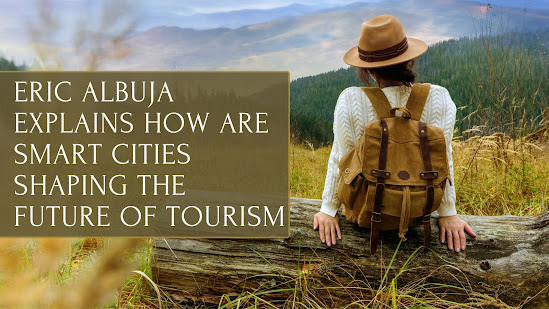Eric Albuja Explains How Are Smart Cities Shaping the Future of Tourism
The concept of smart cities is revolutionizing the way we live, work, and travel. By integrating cutting-edge technology and sustainable practices, these urban areas are becoming more efficient, livable, and attractive to visitors. Eric Albuja, a renowned expert in urban planning and smart technologies, provides insights into how smart cities shape the future of tourism.
What Are Smart Cities?
Smart cities utilize advanced technologies, such as the Internet of Things (IoT), big data, and artificial intelligence, to enhance the quality of life for residents and visitors alike. These cities aim to improve urban infrastructure, optimize resource management, and create more sustainable environments. Key features include smart transportation systems, energy-efficient buildings, and digital services that streamline waste management and public safety.
Enhancing the Visitor Experience
Seamless Transportation
Eric Albuja Roanoke Tx emphasizes that One of the most significant ways smart cities impact tourism is through improved transportation. Smart cities implement intelligent transportation systems (ITS) that provide real-time updates on traffic conditions, public transit schedules, and ride-sharing options. This reduces congestion and makes navigating a city easier for tourists. Cities like Singapore and Barcelona have adopted smart transportation solutions that allow tourists to travel effortlessly, enhancing their overall experience.
Personalized Travel Recommendations
Smart cities leverage big data to offer personalized travel recommendations. By analyzing data from various sources, such as social media, search engines, and travel apps, smart city platforms can suggest attractions, dining options, and activities tailored to individual preferences. This level of personalization ensures that tourists can make the most of their visit, discovering hidden gems and local favorites that might otherwise go unnoticed.
Enhanced Safety and Security
According to Eric Albuja, Safety is a top priority for travelers, and smart cities are leading the way in ensuring a secure environment. Advanced surveillance systems, coupled with AI, monitor public spaces to detect and respond to potential threats in real-time. Smart street lighting and emergency response systems also contribute to a safer urban landscape, making tourists feel more secure as they explore the city.
Sustainable Tourism Practices
Eco-Friendly Infrastructure
According to Eric Albuja Roanoke TX, Sustainability is at the core of smart city development. Green buildings, renewable energy sources, and efficient waste management systems reduce the environmental footprint of urban areas. Tourists are increasingly seeking destinations prioritizing sustainability, and smart cities are well-positioned to meet this demand. For instance, Copenhagen's extensive network of bike lanes and commitment to carbon neutrality attract eco-conscious travelers worldwide.
Smart Resource Management
Smart cities use technology to manage resources more efficiently. Water and energy conservation measures, such as smart grids and automated irrigation systems, ensure that resources are used judiciously. This benefits the environment and creates a more pleasant experience for tourists, who can enjoy clean, green spaces without worrying about the city's impact on the planet.
Boosting Local Economies
Supporting Local Businesses
Smart cities often prioritize the development of local businesses, creating a vibrant economy that benefits both residents and visitors. Digital platforms connect tourists with local artisans, markets, and eateries, fostering a unique cultural experience. For example, smart city initiatives in Tokyo have integrated local shops into digital maps and travel guides, making it easy for tourists to support local enterprises.
Data-Driven Tourism Strategies
According to Eric Albuja, Data from various smart city systems provides valuable insights into tourist behavior and preferences. This information helps city planners and businesses develop targeted strategies to attract and retain visitors. By understanding what tourists enjoy and where they spend their time, cities can tailor their offerings to meet the needs of their guests better, ensuring a thriving tourism sector.
Conclusion
Eric Albuja's insights into the role of smart cities in shaping the future of tourism highlight the transformative potential of technology in creating more efficient, sustainable, and enjoyable urban environments. As smart city initiatives evolve, they will undoubtedly play a crucial role in redefining the tourism landscape, offering travelers unparalleled experiences while promoting sustainable practices and supporting local economies. Integrating smart technologies not only enhances the visitor experience but also paves the way for a more connected and resilient future.


Comments
Post a Comment